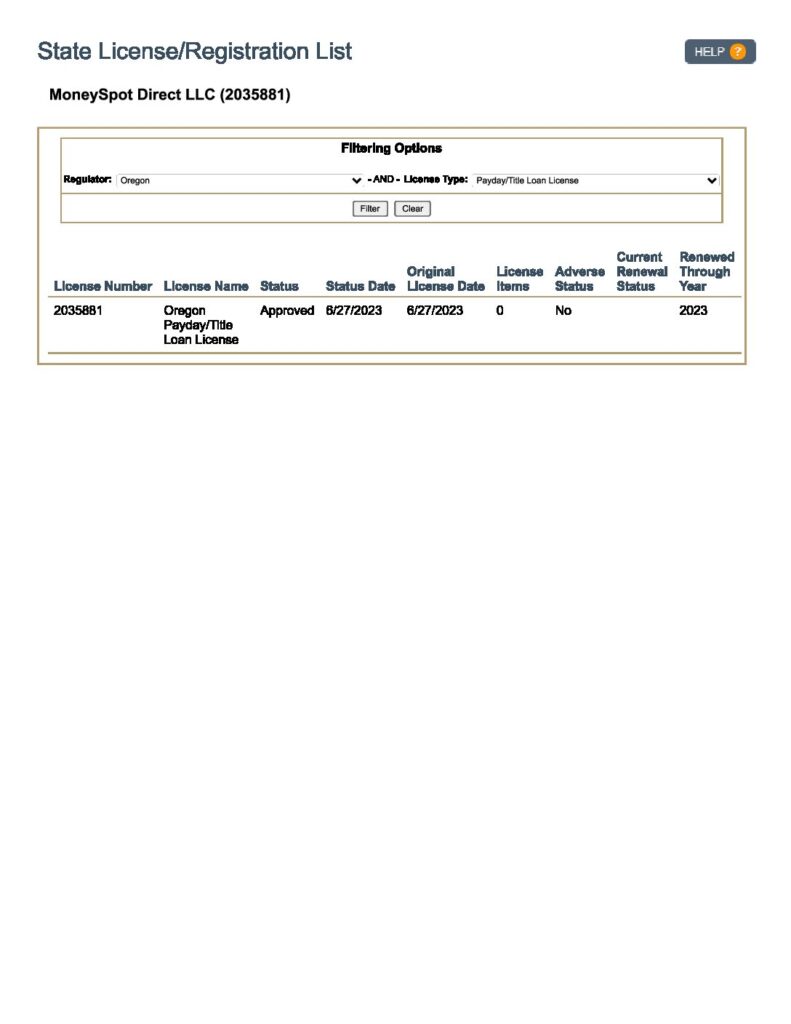This new borrower may leverage brand new equity to help you discuss better mortgage terms and conditions, including straight down rates of interest,
- Benefits for the borrower: The borrower can use the https://paydayloansalaska.net/gateway/ collateral to obtain financing that may not be available or affordable otherwise. highest financing wide variety, and longer repayment periods. The borrower can also retain the ownership and use of the collateral, as long as the loan obligations are met.
- Dangers for the borrower: The newest debtor face the risk of shedding the fresh new guarantee in case your mortgage financial obligation are not fulfilled. New borrower also confronts the risk of getting the amount borrowed and you may terms modified in accordance with the alterations in the new collateral worthy of and gratification. The newest borrower as well as face the risk of getting the equity topic with the lender’s control and you will examination, which could limit the borrower’s self-reliance and you may privacy.
- Benefits for the lender: The lender can use the collateral to secure the loan and reduce the credit risk. The lender can also use the collateral to recover the loan amount and costs in case of default. The lender can also use the collateral to monitor and influence the borrower’s operations and performance, which may increase the mortgage quality and profitability.
- Risks to your lender: The financial institution faces the risk of getting the guarantee beat its value otherwise high quality because of age, thieves, or ripoff. The financial institution plus face the possibility of acquiring the guarantee getting unreachable or unenforceable because of court, regulatory, or contractual products. The lending company and additionally confronts the possibility of having the collateral sustain most will set you back and you will liabilities due to repair, shop, insurance rates, fees, or legal actions.
Information Collateral during the House Centered Financing – Advantage mainly based lending infographic: How exactly to picture and you will understand the key points and data away from investment centered credit
5.Knowledge Security Requirements [Brand new Blog site]

One of the most important aspects of asset based lending is understanding the collateral requirements. Collateral is the assets that you pledge to secure the loan, such as accounts receivable, inventory, equipment, or real estate. The lender will evaluate the quality and value of your collateral and determine how much they are willing to lend you based on a certain percentage of the collateral’s appraised value. This percentage is called the advance rate. The higher the advance rate, the more money you can borrow. However, the collateral requirements also come with certain conditions and restrictions that you need to be aware of and comply with. In this section, we will discuss the adopting the subjects associated to collateral requirements:
step 1. The way the financial inspections and you will audits their security. The lender requires one to bring regular account to the position and gratification of the equity, for example aging reports, inventory accounts, conversion records, an such like. The financial institution also carry out occasional audits and monitors of security to ensure the accuracy of your accounts and the status of the property. Brand new frequency and you may range of these audits can vary based the kind and you can sized the loan, the standard of your security, plus the quantity of exposure inside it. You may be responsible for the expenses of them audits, that will range from a couple of hundred to a lot of thousand bucks for each review. You will need certainly to cooperate for the financial and offer these with entry to their instructions, ideas, and premises inside the audits.
The lending company will use different methods and you can standards so you’re able to value your guarantee depending on the brand of house
2. How the lender values and adjusts your collateral. For example, accounts receivable ount, inventory may be valued based on the lower of cost or ent may be valued based on the forced liquidation value, and real estate may be valued based on the fair market value. The lender will also apply certain discounts and reserves to your collateral to account for potential losses, dilution, or depreciation. For example, the lender may exclude or reduce the value of accounts receivable that are past due, disputed, or from foreign customers, inventory that is obsolete, damaged, or slow-moving, equipment that is outdated, worn, or idle, and real estate that is encumbered, contaminated, or subject to zoning issues. The lender will adjust the value of your collateral periodically in accordance with the alterations in industry conditions, the performance of your business, and the results of the audits. These adjustments ount of money you can borrow or the availability of your loan.